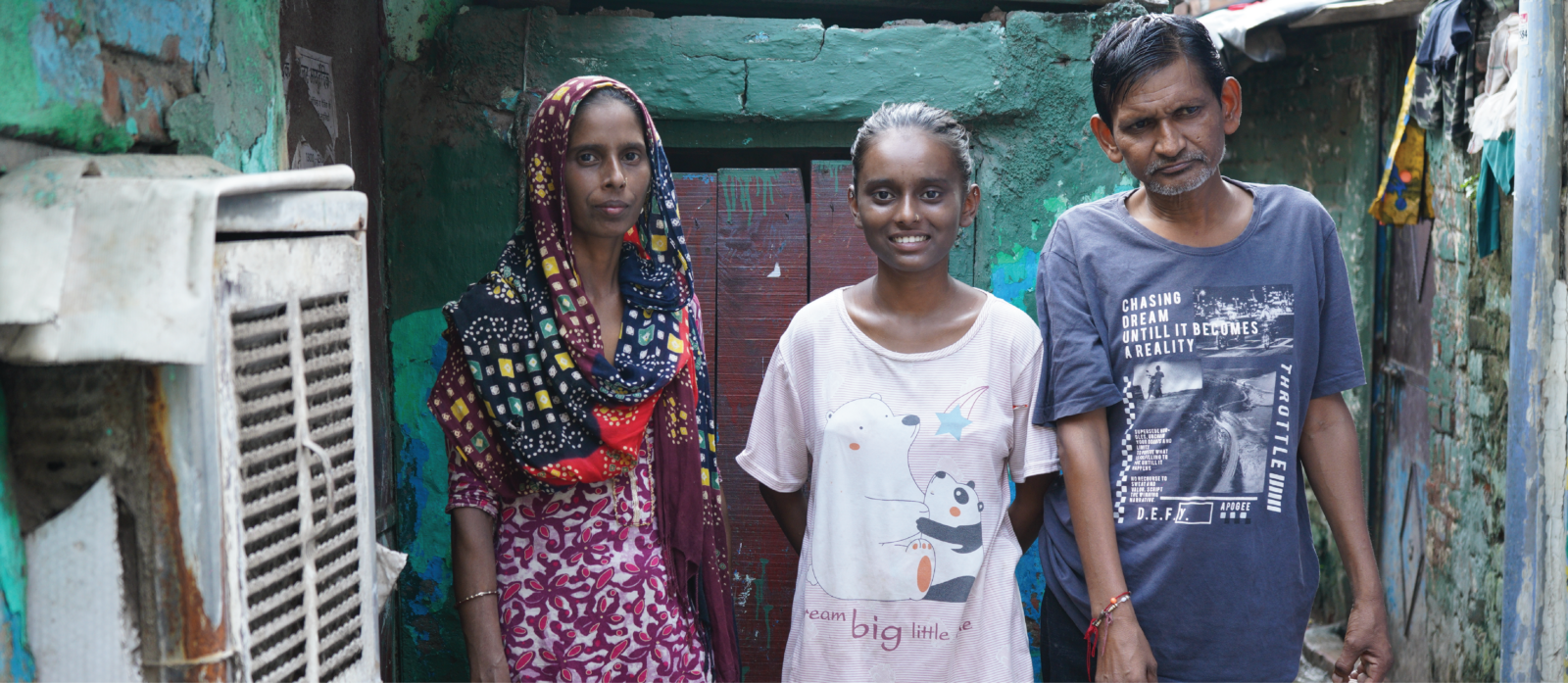When a father returns home from work, shoulders heavy with exhaustion, the entire mood of the house shifts—quiet, tense, subdued. When a mother falls ill, the home seems to orbit around her recovery, every heartbeat echoing concern. But when both parents sit down for a simple meal, laughing softly over everyday things, the child feels something powerful: peace, safety, a sense of home.
Parents shape their children’s world more than they realize. Their emotions set the tone, their presence offers comfort, and their struggles—though often silent—leave lasting impressions. In our many case stories, it’s clear how deeply family dynamics affect children. Many of those we support have run away not out of rebellion, but from unresolved pain, emotional distance, or unspoken conflicts at home. And yet, even in the hardest of circumstances, most parents give everything they can. What they can’t offer emotionally, they try to compensate for with backbreaking work and relentless sacrifice.
On the occasion of Global Day of Parents, we bring 5 ground stories that reveal just how pivotal parental presence, understanding, and support can be in a child’s development and well-being. Whether it’s the absence of emotional connection, financial hardship, or simply a lack of awareness, the impact of strained family dynamics can be profound—leading children to drop out of school, run away from home, or fall into harmful situations.
Raju’s Parents Move the Goalpost from Surviving to Thriving
At 14, Raju (name changed) had never held a pencil or sat in a classroom—he worked as a child labourer while his younger siblings roamed the streets. Their parents, daily wage labourers, were focused on survival, unaware of the long-term cost to their children’s future. That changed when a case worker began regular visits, building trust and guiding the family toward education. The younger siblings were enrolled in school, now proudly introducing themselves in English. For Raju, home-based tuition helped him start from scratch. He’s no longer working and dreams of becoming an electrician. “We didn’t know what was possible,” his parents now say. “Now we just want them to study and do something good with their lives.”
Ravi’s Father Accepts and Supports Ravi’s Silenced Passion
At just 12, Ravi (name changed) ran away from home multiple times—not out of fear, but in pursuit of his passion for dance. With no space to practice and a father who didn’t understand his dream, Ravi felt invisible and unsupported. A case worker stepped in, listened without judgment, and quickly realized that his escapes were rooted in a need for expression and acceptance. The team enrolled him in a local dance class, provided counselling to rebuild his confidence, and facilitated family sessions to help his parents—especially his father—understand the importance of nurturing his passion. The family even shifted to a new home with space for him to practice. Today, Ravi attends school regularly, dances with joy, and is emotionally grounded. His father, once unsure, now watches his rehearsals with pride.
Vocational Support to Amit’s Father Uplifts Their Family
At 15, Amit (name changed), a child from Jharkhand, was rescued once—but not for long. Though initially sent back home, he was soon found working in a hazardous factory. During routine follow-up calls, a case worker uncovered the situation and quickly escalated it to the local Child Welfare Committee and Labour Department. Amit was safely withdrawn from the dangerous job, and his family received vocational support for the father, easing the financial pressure that had forced the boy into labour. Today, Amit is enrolled in a government skill training program and is preparing to continue his education through open schooling—this time, with a real chance at a better future.
A Sister’s Love, A Father’s Absence: Finding Family in Kinship Care
At just 7 years old, Manu (name changed) was found begging on the streets—abandoned by his mother and with a father too ill to care for him. Vulnerable and alone, his future seemed uncertain. But timely intervention changed his path. The caseworker helped place Manu in kinship care with his elder sister, providing him with the stability and love he desperately needed. Today, Manu is thriving—attending school, continuing his education, and living a safer, happier life with his sister by his side.
Supporting Parental Love with a Strong System to Bring Priya Back Home
Priya (name changed), a young girl battling substance abuse and a chronic tendency to run away, was the focus of an intense, coordinated effort by our team. When she went missing, the case worker, alongside her family, tirelessly searched various locations and engaged other NGOs for support. She was eventually located, and the team acted swiftly—visiting her immediately and notifying the Child Welfare Committee (CWC) the same day to arrange protective care. However, due to no sitting of the CWC that day, and the refusal of a short-term stay order, Priya could not be placed in a safe space. Tragically, she ran away again shortly after.
Despite not knowing her whereabouts, the team has continued efforts to locate her while simultaneously working with other vulnerable children and their families. Through regular visits and one-on-one sessions, the focus has been on strengthening family bonds—teaching effective communication, raising awareness about emotional well-being, and helping families set meaningful goals. While Priya’s case remains unresolved, it underscores the urgency for responsive systems and the vital role of holistic family support in preventing relapse and loss.
At the heart of every child’s well-being is the family. Through our Family Reintegration work, we recognize that rescue is only the first step—true change begins when we walk alongside families, helping them heal, reconnect, and rebuild. With Family Reintegration, we have charted a path that helps us arrive at the root cause of the frequent separation between parents and children and execute a care plan that aims to strengthen the familial bond and prevent future separations.





